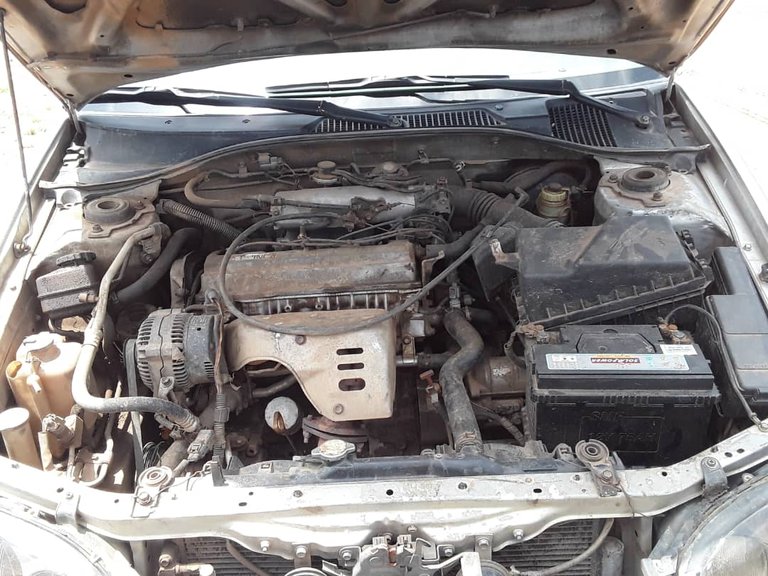Deciphering the Mysterious Engine Oil Light: Is It the Oil Pump or Something Else?
In my previous post, I discussed our school bus's engine woes, a tale ignited by a malfunctioning oil pump exacerbated by the driver's disregard for the dashboard's oil warning light. Thankfully, our seasoned mechanic came to the rescue, reviving the engine. This operation, though fiscally significant, proved far more economical than procuring a new engine.
Now, let's shift gears to a more personal automotive odyssey involving my beloved car. Lately, it has raised concerning questions, particularly about its engine's health. Roughly three months ago, the engine oil light embarked on an erratic performance, flickering to life during my journeys. It persisted for about 30 seconds to a minute before vanishing, resuming this enigmatic cycle at irregular intervals. Troubled by this automotive enigma, I promptly drove my vehicle to my trusted mechanic for a comprehensive check-up.
At the workshop, the engine's oil was promptly drained, and the underbelly of the mechanical marvel unveiled, scrutinized for any residual debris or contaminants that could hinder the engine's oil pressure. Simultaneously, both the engine oil and the oil filter were dutifully replaced. This unscheduled automotive intervention incurred an unforeseen financial burden, yet I remained optimistic that it would extinguish the oil light's troublesome glow. Alas, my optimism was short-lived, for the luminous sentinel rekindled its intermittent illumination, much to my dismay, merely a day after this thorough maintenance.

My experienced mechanic, upon conducting an extensive examination, posited that the issue might be linked to the oil switch or sensor. He reassured me that it was safe to continue operating the vehicle until I had the financial means to address the sensor's replacement. Concomitantly, he underscored the pressing need to replace the worn-out brake discs.
When the time came for the brake disc replacement, a new automotive quandary emerged. The gear oil reservoir was found to be perilously low, necessitating a prompt evacuation and replenishment of the vital lubricant. I granted the mechanic the green light to perform this vital task as well. Strangely, in the days following these repairs, the engine oil light refrained from making its untimely appearances. However, its sporadic reappearances on the third day left me perplexed.
This enigmatic situation beckoned for a deeper investigation. I took it upon myself to conduct a thorough inquiry, consulting reputable automotive websites and seeking the counsel of knowledgeable experts. What I uncovered was a multifaceted conundrum.
Some experts posit that the oil light's activation when the engine reaches operating temperature may indicate suboptimal engine oil. However, in my case, this possibility seemed unlikely, as I had already replaced the oil shortly after the problem's onset. Another theory suggests that diminished oil pressure might stem from internal oil leaks caused by aging or compromised components. Yet, this was ruled out, as the engine's underbelly had been meticulously inspected and found free from such issues.
There is also the consideration of the oil filter as a potential culprit. Nevertheless, this avenue was explored, with the oil filter being replaced, and yet the problem persisted, eliminating this component as the source of the problem. The possibility of a malfunctioning oil pump also came up, which seemed plausible. However, I pondered why my engine hadn't suffered more severe consequences if the issue indeed emanated from a failing oil pump. Thus, the enigma of a malfunctioning versus a completely failed oil pump remains, offering another layer of complexity to the situation.
This brought me back to the original diagnosis offered by my trusted mechanic – a malfunctioning oil sensor. My hunch is that the oil sensor may be intricately linked to the engine's temperature regulation. Nevertheless, my vehicle continues to operate flawlessly, displaying no discernible shifts in sound or functionality since the issue's onset. This leads me to believe that the oil sensor could be the underlying cause of the issue.
If it were a more serious engine problem, I would anticipate notable consequences on the vehicle's overall performance, given that this issue manifested roughly three months ago. Therefore, I am inclined to think that the oil sensor may, in fact, be the elusive culprit behind this automotive mystery.
Nonetheless, the complexities of automotive diagnostics remind us that there may be more to this puzzle than meets the eye. The quest for a definitive solution continues.
If I were the one working on the car and a customer came to me with such complaints, what I would do is change the Engine oil and oil filter, if it's still popping up I would change the oil switch and oil sensor.
I will also recommend that the need for a diagnosing system will also help to make things easier. Because if you use a diagnostic system to check the car, it will just pick up the fault immediately lights that come up on the dashboard also require clearing with a diagnosing system when you are done. To reset the brain of the car that this issue has been treated.
My car is an old one that is not compatible with modern day scanners. So, the option of using a diagnostic system may not apply. Also, is there a difference between the oil switch and oil sensor? I used them interchangeably in my post on the assumption that they are the same.
Thanks for your contribution to the STEMsocial community. Feel free to join us on discord to get to know the rest of us!
Please consider delegating to the @stemsocial account (85% of the curation rewards are returned).
You may also include @stemsocial as a beneficiary of the rewards of this post to get a stronger support.